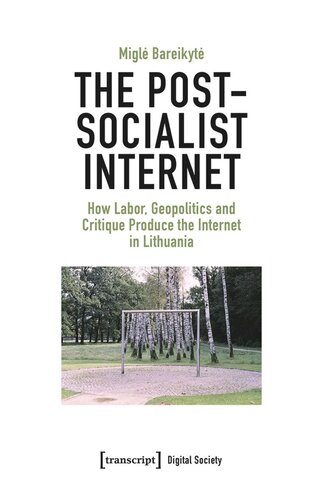

Most ebook files are in PDF format, so you can easily read them using various software such as Foxit Reader or directly on the Google Chrome browser.
Some ebook files are released by publishers in other formats such as .awz, .mobi, .epub, .fb2, etc. You may need to install specific software to read these formats on mobile/PC, such as Calibre.
Please read the tutorial at this link: https://ebookbell.com/faq
We offer FREE conversion to the popular formats you request; however, this may take some time. Therefore, right after payment, please email us, and we will try to provide the service as quickly as possible.
For some exceptional file formats or broken links (if any), please refrain from opening any disputes. Instead, email us first, and we will try to assist within a maximum of 6 hours.
EbookBell Team

4.1
70 reviewsHow is the Internet used as an infrastructure for development in post-socialist Lithuania? Migle Bareikyte contributes to the growing field of STS and media studies with a distinct focus on Eastern Europe. She situates the Internet development in Lithuania's telecom industry with the exploration of its labor practices, geopolitical imaginaries, and critical negotiations from a bottom-up perspective. Bareikyte further explores how fieldwork-based research can foster new theorizations of media infrastructures. Finally, she argues for a situated investigation of new places and actors beyond the United States and Western Europe-such as post-socialist regions-in order to explore the diversity of media infrastructures.